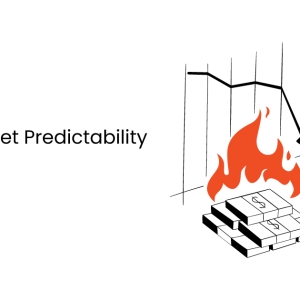Summary
Transforming budget management challenges into strategic opportunities involves embracing adaptability, proactive financial planning, and innovative approaches. By turning budget woes into a chance for financial resilience, organizations can unlock strategic triumphs.
The key lies in fostering a culture of financial innovation, implementing adaptive budgeting strategies, and leveraging remote talent to enhance project outcomes. This shift from traditional budget management to a more strategic and agile approach ensures organizations are well-positioned for success in an ever-evolving business landscape.
Introduction
In the realm of software development, managing budgets effectively is paramount to the success and sustainability of projects. Budget woes, such as cost overruns and misallocated resources, can significantly derail projects.
This can result in far-reaching consequences like lousy code quality and delays in timelines. It often results in issues with stakeholders, and challenges to the very existence of the firm.
Strategic planning and proactive management are key while taking up these challenges. At times, organizations need to rethink their strategies and adopt innovative approaches.
This article delves into practical budget management strategies to transform all financial woes into opportunities to do well.
Pain Points in Software Budget Management
Software budget management can be challenging, and various pain points can arise throughout the process. Software projects often face challenges such as changing requirements, unexpected delays, technical issues, and human factors. These challenges can affect the cost, quality, and delivery of the software product.
Here is a good example of issues due to cost overruns. The project to transform 1500 websites of the Canadian Government into a single portal. There were big delays in this project resulting in cost overrun.
Here are common pain points in managing software development budget:
Scope Creep:
This is the gradual expansion of a project’s scope after its commencement, often leading to unanticipated work and budget overruns.
Inaccurate Estimations:
Due to the intangible nature of software, estimating time and cost accurately can be difficult, leading to budgetary discrepancies.
Resource Mismanagement:
Inefficient allocation of resources, both human and technological, can result in increased costs and wasted effort.
Rapid Technological Changes:
The fast pace of technological advancement can render initial project plans obsolete, impacting the allocated budget.
Technical Debt:
Short-term compromises in software development can accumulate ‘debt’ that may result in higher costs later.
Poor communication and collaboration:
This can lead to misunderstandings, conflicts, errors, rework, delays, and waste of resources.
Transparency & Information:
Lack of real-time insights into software project expenses and a budget misalignment with software project objectives.
Reporting structure:
Low or no client involvement in software budgeting.
Changes:
Frequent changes in project requirements may disrupt budget planning and lead to additional expenses.
Technical glitch:
Unexpected technical hurdles may arise, requiring additional resources and budget adjustments.
Failure to keep track:
Limited visibility into ongoing project expenses can lead to inadequate monitoring and control.
Mismatched skillsets:
Using resources with inappropriate skillsets may result in inefficiencies and increased costs.
No alternative plan to fall back on:
Lack of contingency plans (and budget) for unforeseen events may leave the budget vulnerable to unexpected expenses.
Learning from past projects:
Failing to analyze budget performance post-implementation may result in missed opportunities for improvement.
Strategic Tips For Budget Management and Control
The key to prevent budget overruns is to implement a good strategy. Here are several tips:
Data-Driven Decision-Making:
Implement data analytic tools to gain actionable insights. Leverage historical data to make informed decisions and optimize resource allocation.
Agile Budgeting and Development:
Adopt agile budgeting and development methodologies. Embrace iterative approaches that accommodate changes in project scope and requirements.
Cost Optimization Strategies:
Conduct detailed cost analyses. Identify and implement cost-saving measures without compromising the quality and functionality of the software.
Transparent Communication Channels:
Establish transparent communication channels. Regularly update stakeholders on budget progress, project milestones, and potential deviations.
Risk Management Protocols:
Develop robust risk management protocols. Anticipate potential challenges specific to software development and allocate contingency funds accordingly.
Strategic Vendor Relationships:
Optimize vendor relationships. Negotiate contracts, explore cost-effective software solutions, and foster strategic alliances.
Technology Integration for Automation:
Integrate budgeting tools and automation. Utilize technology for accurate forecasting, reducing manual errors, and streamlining financial workflows in software development.
Enhanced Employee Skillsets:
Invest in training programs. Enhance the financial literacy of software developers, enabling them to contribute to budgetary decisions.
Culture of Continuous Improvement:
Foster a culture that values continuous improvement. Encourage teams to share insights, learn from past software projects, and apply lessons to enhance future budget management.
Strategic Alignment with Software Goals:
Align software budgets strategically with project goals. Ensure that every budgetary decision contributes to the successful delivery of software projects.
Client Collaboration in Software Projects:
Collaborate with clients on budget decisions for software projects. Engage them in transparent discussions to align financial goals with project outcomes.
Benchmarking and Industry Best Practices:
Conduct benchmarking exercises. Identify and adopt industry best practices for software development budget management.
Strategic Planning and Budget Forecasting: Conduct brainstorming sessions and perform research to come up with the ultimate budget plan. Divide the project into smaller sections to make it more manageable. This improves the level of cost predictability.
Embracing Agile Methodologies: An iterative approach improves project outcomes and also provides a framework for managing costs more effectively. Allow for adjustments to be made in response to changing requirements or unforeseen challenges without significantly impacting the overall budget.
Trust The Experts To Keep Your Project On Budget
Trusting experts is a crucial strategy to ensure your software development project stays on budget. You might be tempted to handle everything yourself or to hire the cheapest contractors you can find, but this could end up costing you more in the long run. Instead, you should trust the experts to keep your project on budget and provide you with quality work.
Acquaint Softtech is the expert at delivering custom software solutions on a budget. We have already developed over 5000 cutting-edge solutions for clients worldwide. Our team of professionals has skills in various technologies and exposure to several industries as well.
Hire remote developers from Acquaint Softtech; here are the benefits:
- We bring years of experience in managing diverse projects. Their seasoned insights help anticipate challenges and navigate complexities, contributing to budget adherence.
- Our professionals possess deep industry knowledge. Their understanding of software development nuances allows for precise budgeting, considering various factors that may impact costs.
- We have experts who excel in risk assessment. By identifying potential pitfalls early on, they develop robust mitigation strategies, safeguarding your project from unforeseen expenses.
- Dealing with third-party vendors requires finesse. We excel in negotiating contracts, ensuring favorable terms, and managing vendor relationships, which can impact project costs.
- The professionals here have a keen eye for resource optimization. They allocate resources efficiently, matching skills to tasks, preventing wasteful spending and enhancing overall cost-effectiveness.
Trust the experts at a software outsourcing company, to keep your project on budget and enjoy the benefits of working with professionals who can deliver high-quality results on time and within your budget. Contact us today to find out how we can help you with your project.
Conclusion
Addressing these pain points requires a combination of effective planning, continuous monitoring, clear communication, and a willingness to adapt to changing circumstances. Implementing robust strategies to mitigate these challenges is essential for successful software budget management.
By proactively addressing these challenges and leveraging strategic opportunities, organizations can enhance software budget management. This ensures project success, and positions themselves for continued growth and innovation.
Entrust your software development project to experts to leverage their wealth of knowledge, skills, and experience. This not only safeguards your budget but also enhances the overall success and efficiency of your project.
FAQ
What are the common challenges in software budget management?
Common challenges in software budget management include inaccurate initial estimates, scope creep, changing requirements, unforeseen technical challenges, vendor-related issues, poor resource allocation, lack of visibility, communication gaps, inadequate risk management, and rapid technological changes.
How can agile budgeting address challenges in software development projects?
Agile budgeting allows for flexibility and adaptability to changing project requirements. It enables iterative approaches, accommodating changes in scope and requirements, promoting collaboration, and facilitating better responsiveness to evolving project dynamics.
What strategies can be employed to prevent budget woes in software development?
Strategies to prevent budget woes in software development include detailed project planning, continuous monitoring, clear communication, agile budgeting, risk assessment and contingency planning, optimized resource allocation, efficient vendor management, employee training on financial literacy, benchmarking against industry standards, and scalability planning.
Why is trusting experts crucial for keeping a software project on budget?
Experts bring experience, in-depth knowledge, and skills to manage diverse projects effectively. They excel in risk mitigation, vendor management, efficient resource allocation, and adaptability to changes, contributing to budget adherence. Trusting experts ensures that your project benefits from seasoned insights and industry best practices.
How do professionals contribute to transparent communication in software budget management?
Professionals contribute to transparent communication by establishing clear communication channels and providing regular updates on budget status, potential risks, and changes. Their expertise ensures that stakeholders are well-informed, fostering trust and collaboration throughout the software development project.






